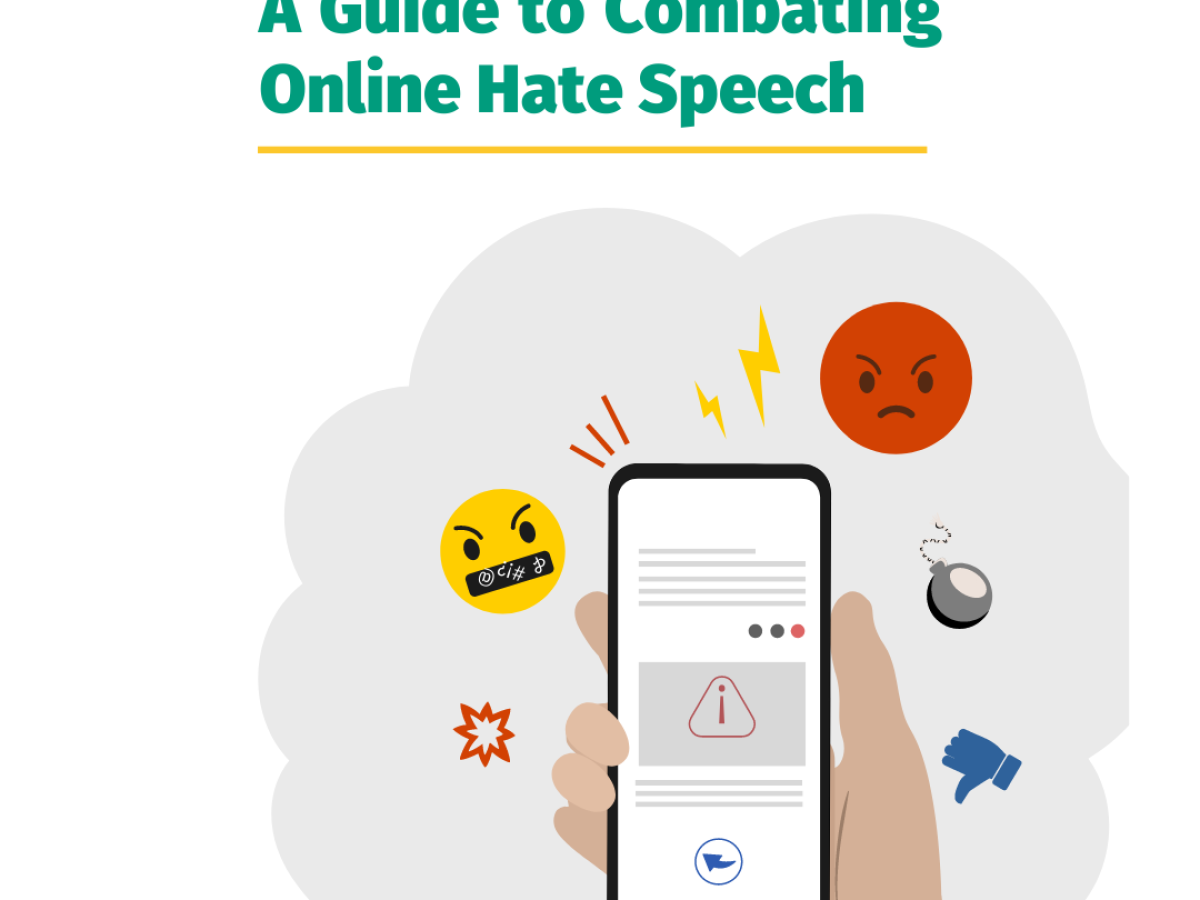
Introduction
7amleh - The Arab Center for the Advancement of Social Media presents this guide to shed light on prevalent online hate speech and possible ways to counter it in the Palestinian context. In addition to its crisp brevity, this reference gains further significance as it provides a clear definition of hate speech, presenting the relevant legal and human rights framework that entitles people to encounter this abusive form of expression. It also gives authentic examples and hands-on steps to address this form of intolerance, given its prevalence and the fact that a high percentage of social media users are exposed to various forms of abusive and hate speech.
Definition
Hate speech is any form of discriminatory or pejorative verbal or written discourse, communication, or content that expresses, encourages, flares up, or incites hatred against people or groups based on inherent characteristics or specific factors of their identity such as gender, race, color, nationality, religion, origin, or political opinion. In doing so, hate speech creates an environment of violence and social, political, and cultural rifts.
Hate speech is often manifest in generalizations and stereotypes, bigoted and discriminatory views, dehumanization, political gaslighting, and false representations in the media. In the Palestinian context, hate speech takes four forms: event-related hate speech, swinging hate speech (usually between political and gender), complex, identity-related, and institutionalized hate speech.
Although there is a world of difference between the two, hate speech is often confused with freedom of expression. While restrictions on the freedom of opinion are strictly prohibited under any circumstances, freedom of expression may not also be restricted as long as it respects the rights and reputations of others and does not violate the order of the public. Furthermore, any restrictions based on the said grounds must be carried out as provided by law and as necessary in a manner proportionate to the raison d'être of such limitations. Hate speech, however, is any content or expression that goes beyond the bounds of the freedom of expression to advocate or stir up hatred and discrimination against specific groups, entities or individuals, unfolding many sociopolitical risks and threatening the well-being of individuals and communities as well as their rights to safety and freedom.
Check out the full guide:
p;">